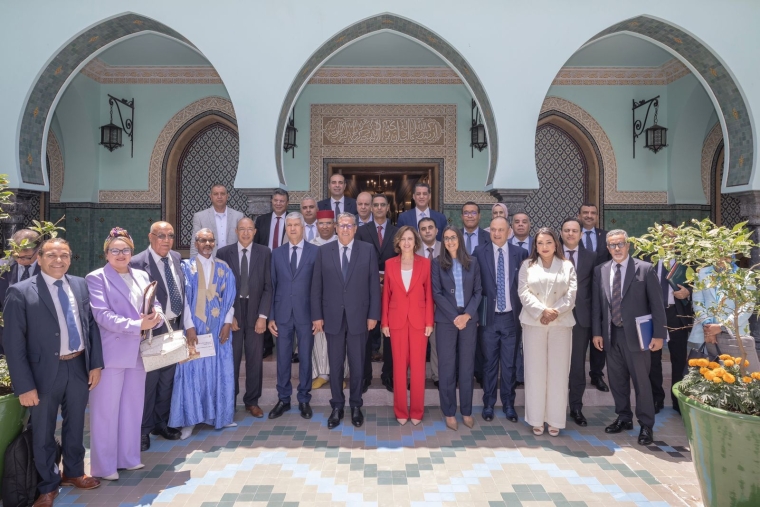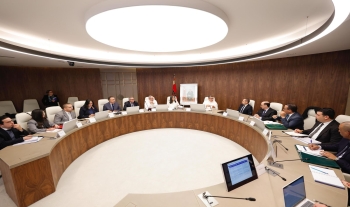The Head of Government presides over the first National Council of Crafts

On Tuesday, July 16, the Head of Government, Mr. Aziz Akhannouch, chaired the first meeting of the National Council of Crafts, established by Law 50.17, which came into effect in 2022 to govern and modernize the practice of craft activities.
This meeting allowed for the establishment of the specific commission that will be responsible for preparing the new strategic roadmap for the development of craftsmanship, in accordance with Article 31 of Law 50.17. This ambitious strategy will aim to address the sector's challenges including heritage preservation, generalization of social coverage, strengthening the role of Chambers of Crafts, development of cooperatives, improvement of vocational training, optimization of raw material supply, as well as expansion of marketing and enhancement of exports.
The National Council of Crafts thus marks a crucial step in the national strategy for craft development. Its main mission is to develop and propose concrete measures aimed at revitalizing, modernizing, and developing this sector. The ultimate goal is to improve the competitiveness of artisans and their socio-economic conditions while preserving the Kingdom's rich craft heritage.
During this meeting, Mr. Aziz Akhannouch emphasized the strategic importance of crafts for the national economy, recalling the essential role of this sector, which represents a major asset for tourism, in Moroccan cultural identity. The Head of Government thus affirmed the government's firm commitment to support and develop this sector, in line with the High Directives of His Majesty King Mohammed VI, may God assist him.
Subsequently, the Minister of Tourism, Crafts, Social and Solidarity Economy presented a detailed report on the flagship projects launched by the government since 2021 in the crafts sector. She particularly highlighted the acceleration of the implementation of Law 50.17, with the publication of its implementing texts, as well as the successful launch of the National Register of Crafts. The latter has enabled the registration of more than 400,000 artisans, as well as the enrollment of 647,000 artisans in the Mandatory Health Insurance scheme, a major advancement for the sector.
It should be noted that the National Council of Crafts is intended to be a collaborative platform, bringing together all stakeholders in the sector: professional organizations, public institutions, ministerial departments, experts, and representatives of artisans. This synergy will allow for the identification of areas for improvement, the proposal of innovative solutions, the development of necessary legislative and regulatory measures, and the coordination of actions for a harmonious and sustainable development of the sector.
Participating in this meeting were the Minister of Economy and Finance; the Minister of Agriculture, Maritime Fisheries, Rural Development and Water and Forests; the Minister of Economic Inclusion, Small Business, Labor and Skills; the Minister of Industry and Trade; the Minister of Tourism, Crafts, Social and Solidarity Economy; the Minister of Energy Transition and Sustainable Development; the Minister of Transport and Logistics; the Minister of Youth, Culture and Communication; as well as numerous key actors in the sector.







